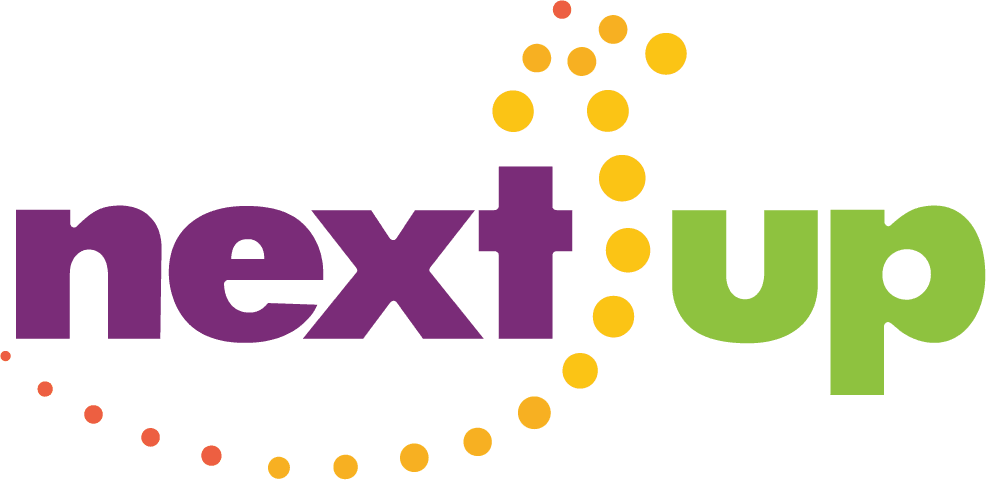Quality out-of-school time (OST) programs help students boost grades, build positive relationships, and grow essential life skills. NextUp supports more than 140 afterschool and summer programs by offering free professional development and training opportunities for OST program providers.
Through training, coaching, and a cohort model focused on continuous improvement, NextUp equips providers to strengthen their curriculum, improve social-emotional learning, and incorporate youth voice and choice in OST programs.
The need for a Cohort Model
After conducting multiple focus groups with program providers, NextUp pinpointed the following necessary improvements to our Professional Development opportunities:
- Continual community-based learning and accountability
- Self-assessment tools based on state and national OST standards
- 1:1 coaching sessions with the NextUp team
- Structured training based on learning pathways, aligned to specific learning plans
From here, the concept of a Cohort Model arose. NextUp gathered 30 providers from organizations of varying sizes (grassroots to large youth development agencies) to begin working through program improvements together.
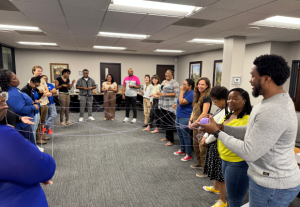
Over 6 months, providers took an honest look at their programs, starting with a self-assessment and parent / youth feedback. From there, they charted a course of action for themselves which included a series of group professional development training sessions and 1:1 coaching sessions with the NextUp team.
How the Cohort Model supports real-time program improvement
After receiving youth feedback via surveys, some programs discovered a need to:
- Incorporate more opportunities for youth to lead and practice critical thinking skills.
- Embed more social-emotional activities into their curriculum to help students cope with big feelings and events happening in their neighborhoods or households.
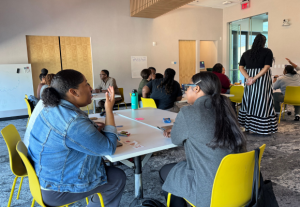
Providers engaged in a series of trainings offered by NextUp with a basis of social-emotional learning. These training sessions align with the nationally renowned Weikart Center’s YPQI approach to continuous quality improvement. The YPQI model focuses on helping programs assess their needs and improvement points, plan a course of action to achieve their goals, and implement meaningful change in order to support kids’ crucial development needs.
What changed for providers and youth
NextUp conducted anonymous surveys post-cohort and received overwhelming positive responses.
One cohort participant said, “I love the interaction with other organizations and being able to relate to one another. Sometimes you feel like you have an issue or issues at just specifically your company but it feels good knowing you’re not alone in that.”
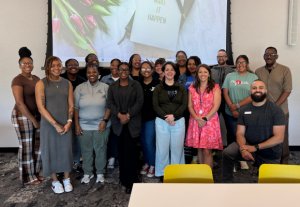
Many of our partners expressed shared struggles, including getting kids to open up about their emotions, addressing the root of behavioral outbursts in a trauma-informed way, and encouraging youth to become leaders and challenge the status quo.
When the path to quality advancement is clear and goals are well-defined, providers can focus on what they truly love: delivering quality programs to youth.
“I love continuous improvement and providing quality program is important to me and my organization, so I loved the data and information provided from the site observations.” says another anonymous participant.
Cohort outcomes
During the final presentation, providers in the NextUp Network shared how they incorporated what they learned from the cohort into their youth programs.
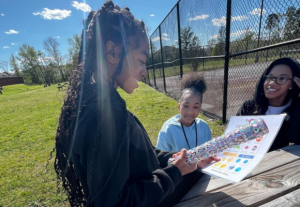
Greater Richmond Fit4Kids integrated feelings charts and “talking sticks” (aptly named Lady Glitter Sparkles) into their day-to- day programs. These additions helped youth better pinpoint and expand on their feelings and promote teamwork and turn-taking.
Lessons learned for future cohorts
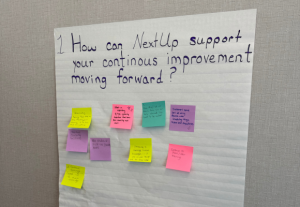
While the initial cohort pilot was a success, we gleaned insights to improve the process for future groups. Moving forward:
- A second 1:1 check-in with NextUp staff will be scheduled near the end of the 6-month cohort to bolster accountability and ensure all providers’ needs are being met.
- Trainings will be offered at different times (weekend, late afternoons) to include providers who may be working outside of their afterschool and summer programs.
- NextUp will provide providers with clear expectations regarding required vs optional meetings, assignments, and metrics to track)
The need for more professional development opportunities in Out-of-School Time spaces
Youth spend 80% of their time outside of school and for every child in an out-of-school time program in Virginia, four are waiting to get in. NextUp expands access to quality afterschool and summer programs while providing free coaching and professional development to a network of 140+ out-of-school time partners.
- If you’re a provider in the NextUp Network, stay tuned to our bi-weekly newsletter for more information on the next cohort and upcoming professional development training opportunities. For youth development professionals looking for more information on joining the network, check out our network resources.
- You can help increase availability of high-demand afterschool and summer programs and simultaneously support continuous program quality improvement. Learn more about how to help.
- If you’re looking for out-of-school time programs for your children, explore NextUp’s Youth Program Locator to connect with programs across greater Richmond.
